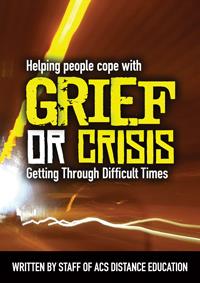Does Food Help the Grieving Process?
When someone dies, food is probably the last thing on a person’s mind. Many people who are grieving will stop eating, losing their appetite as a result of their loss, whilst others may overeat for comfort.
However, food can be a helpful and important part of the healing process. We often hear the say “chicken soup for the soul.” Soup can be calming. It is warm, soothing and smooth. It is easy to share and to heat and perhaps reminds us of when we were younger and the food we would eat.
When someone dies in some cultures, family and friends will gather round, bringing food, showing they care for the person left behind, for the family. Showing their love and kindness with food. This shows kindness and compassion but also helps practically. A widow left with young children may find it hard to motivate herself to prepare food, so this kindness helps her in a practical way.
But remembering people and the way they used to cook or the food they loved can also help. When I was younger, I went to lunch at my grandmother’s every Monday lunchtime when I was at school. She would cook me jacket potatoes with cheese and butter. I loved them and still love them to this day. She has been dead for 31 years and a simple jacket potato still reminds me of her.
Remembering the smell of Sunday lunch or baking bread or cakes that your parents or partner used to prepare can be a helpful reminder. This may seem negative, reminding us of sadness that the person has gone, but it can also be positive. Remembering positive memories of the deceased.
We may look through someone’s old cookery books and remember what they used to cook. Many people write notes in their cookery books, their own recipes, little notes cut out from magazines and newspapers. This can help us to feel closer to the person who has gone.
Visiting cafes or restaurants that were favourites of the person can also be a positive trip down memory lane. Remembering how much the person enjoyed visiting that place.
Some hospices have recognised this important relationship with food and actually run cookery courses to help relatives in the grieving process. This can also help people who are left behind who may have been reliant on the deceased to do the cooking. So as well as helping with the grieving process, learning to cook helps us practically as well.
A Clinical Psychologist, Dr. Herbert states that food can be restorative, once the initial pain of losing someone is overcome. She says, "Food is a connective aspect in our lives and they would have probably shared many experiences that would have involved the preparation, shopping for or sharing of food and taste experiences - this can lead to memories which can be triggered in a positive or negative way," she explains.
Think back over your own life. How many memories are tied with food? Birthday parties, Christmas, baptisms, religious ceremonies, marriages, time with family, fun with friends. Food is tied to many so many events in our lives.
Why not start your own recipe books or journal or blog relating to food? Including your recipes, photographs of events with food, encourage people you know to share food with you, cook food with you. All this can create beautiful and loving memories for all concerned.
If you were interested in the content of this article, why not have a look at our –
 Grief Counselling Course
Grief Counselling Course
Grief or Crisis eBook
Or even get more involved in cooking –
Food Preparation course
Food Preserving eBook
Introduction to Food and Nutrition Short Course
Or take a look at our latest special offers. Click below to find out more –
Or if you have any questions about our courses, our tutors are more than happy to help. Click to contact a Psychology or Food Preparation Tutor.
[19/04/2025 22:56:50]